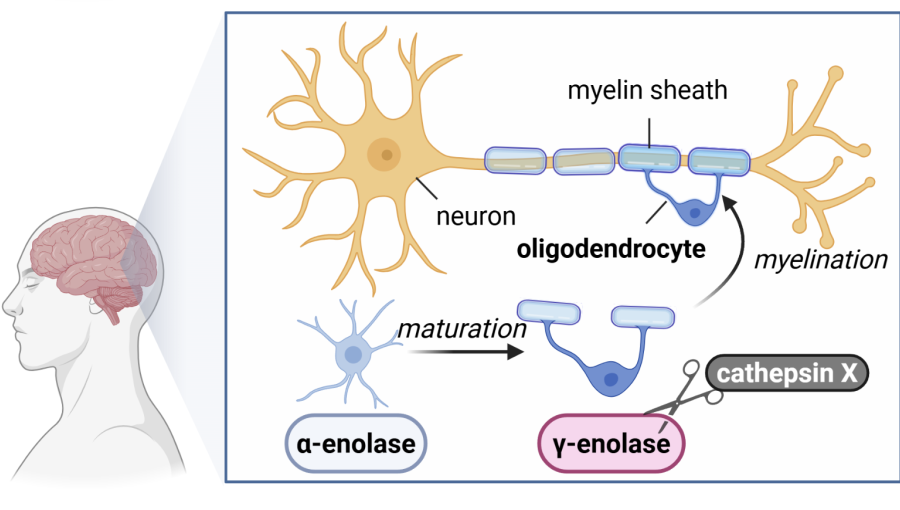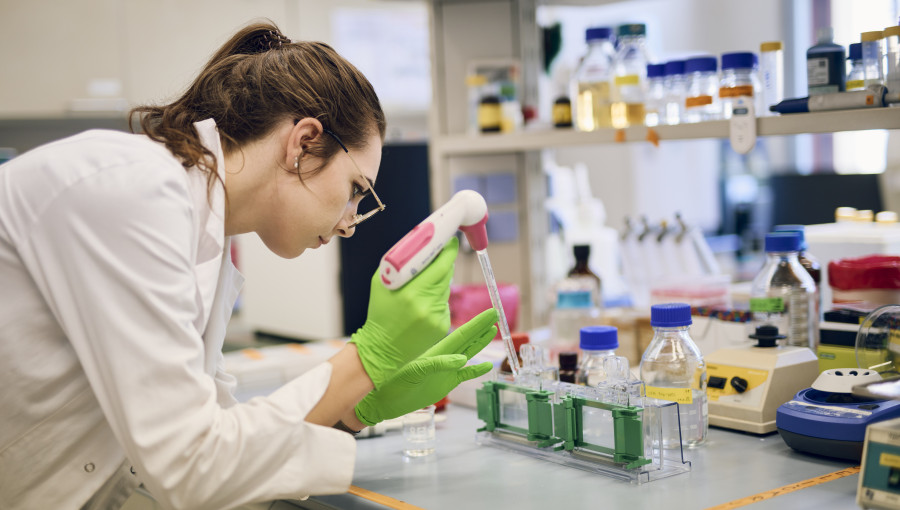A Major Breakthrough in Understanding Multiple Sclerosis

Freepik
Date of publication:
The regeneration of myelin – the protective sheath that surrounds nerve fibers – is one of the greatest challenges in the treatment of multiple sclerosis. Slovenian researchers have now discovered a key mechanism that could lead to new therapeutic approaches for promoting the regeneration of nervous tissue.
Multiple sclerosis is a disease in which the immune system attacks myelin, the fatty layer that enables the rapid transmission of information through the nervous system. Without this protective layer, problems with movement, perception, and memory can occur. Special brain cells called oligodendrocytes play an essential role in rebuilding myelin.
Researchers from the Faculty of Pharmacy at the University of Ljubljana and the Jožef Stefan Institute – Selena Horvat, Urša Pečar Fonović, Ana Mitrović, Nace Zidar, Janko Kos, and Anja Pišlar – have discovered how to stimulate the development of these cells. They found that during the maturation of oligodendrocytes, there is a significant switch between two forms of the enzyme enolase – from α-enolase to γ-enolase. While the former primarily participates in metabolism, γ-enolase plays an important role in cell growth and maturation.
When the researchers increased the levels of γ-enolase, the oligodendrocytes developed more rapidly and began forming structures resembling myelin. Conversely, when γ-enolase levels were reduced, cell development slowed. Another key player in this process is the enzyme cathepsin X, which inhibits the activity of γ-enolase. When the researchers blocked cathepsin X, they observed an even stronger effect – the cells matured faster and more effectively.
This important discovery paves the way for developing new treatment strategies for multiple sclerosis and other diseases where myelin regeneration is crucial. Targeted stimulation of γ-enolase or inhibition of cathepsin X could potentially activate the brain’s own healing processes.
The research was carried out at the Faculty of Pharmacy, University of Ljubljana, in collaboration with the Jožef Stefan Institute. The work was conducted within a research program funded by the Slovenian Research and Innovation Agency (ARIS).
Article: Horvat S, Fonović UP, Mitrović A, Zidar N, Kos J, Pišlar A. The α- to γ-enolase switch: The role and regulation of γ-enolase during oligodendrocyte differentiation. Int J Biol Macromol. 2025 Apr;301:140464. doi: 10.1016/j.ijbiomac.2025.140464. Epub 2025 Jan 28. PMID: 39884600.



